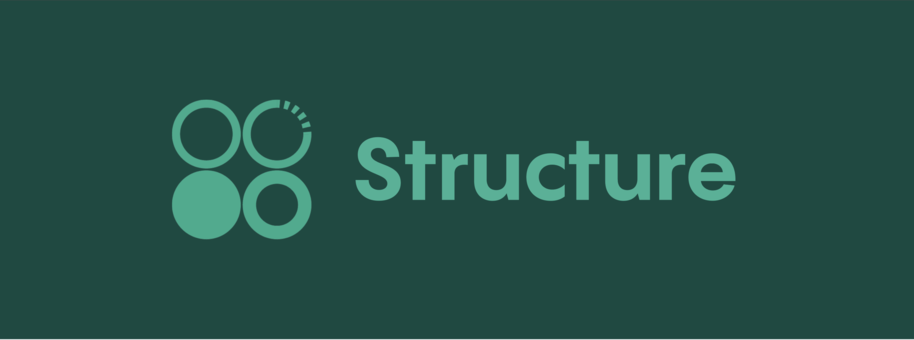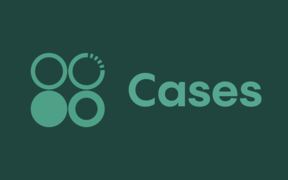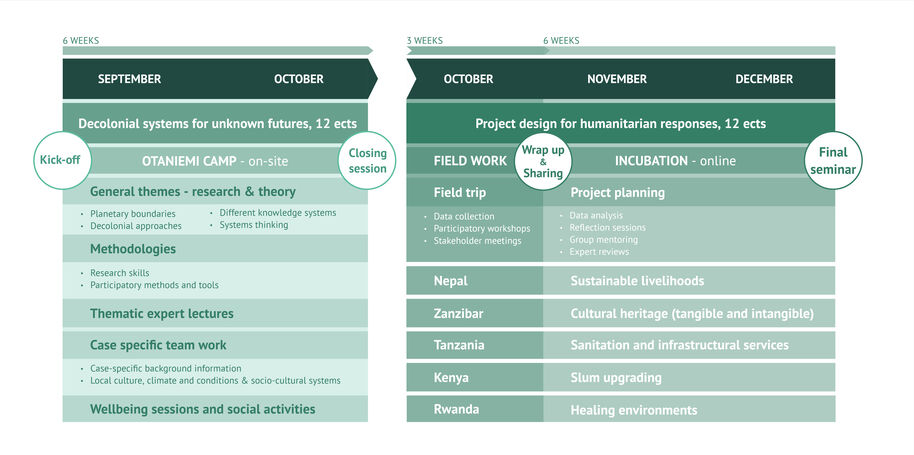Study structure

Otaniemi Camp (12 ECTS)
- 6 weeks on-site in Aalto Otaniemi campus
Project Work (12 ECTS)
- 3-week field work on chosen case location
- 6-week online Incubation
1 ECTS (transferable credit) = 27 working hours
Case studies 2025
Learn more about the provisional case studies for WiTProgramme 2025!


WiT Programme focuses on humanitarian architecture at the intersection of architecture, social sciences, art and design, engineering, business and technology. Aalto WiT Programme equips participants with strategic and practical knowledge and skills that are essential to work in the dynamic fields of humanitarian architecture and sustainable global development. The programme develops holistic understanding and capacities that are increasingly demanded and valued by a variety of international organisations, public and private sectors, NGOs and academic institutions that are active in the field.

SEPTEMBER-OCTOBER: INTENDED LEARNING OUTCOMES
Decolonial systems for unknown futures, 12 ECTS
After completing the course, the student is able to …
- Demonstrate advanced knowledge of different knowledge systems, de-colonial approaches and systems thinking.
- Interpret and examine the case-specific context and academic literature and explain how they connect to planetary boundaries and SDGs.
- Choose and apply appropriate research methods to the case-specific research question.
- Create a project/research plan adjusted to a real-life case.
- Apply team-working tools to operate effectively and ethically in a multidisciplinary and multicultural team.
- Create ideas for life-wide professional development and, ethical, transparent and accountable ways of working.
OCTOBER-DECEMBER: INTENDED LEARNING OUTCOMES
Project design for humanitarian responses, 12 ECTS
After completing the course, the student is able to …
- Develop an inclusive project/research plan/investment card that involves various stakeholders
- Apply relevant methods to collect and analyse fieldwork data to inform the knowledge gap identified by local stakeholders and/or case provider
- Develop recommendations and provide ideas for creating appropriately informed design solutions
- Demonstrate ethical conduct in fieldwork and apply best practices in data management and storage
- Present fieldwork data analysis and future development ideas in written and oral form for the different stakeholders
- Disseminate research informed project plan through relevant forums and to wider public
- Demonstrate professional resilience, empathy and openness






